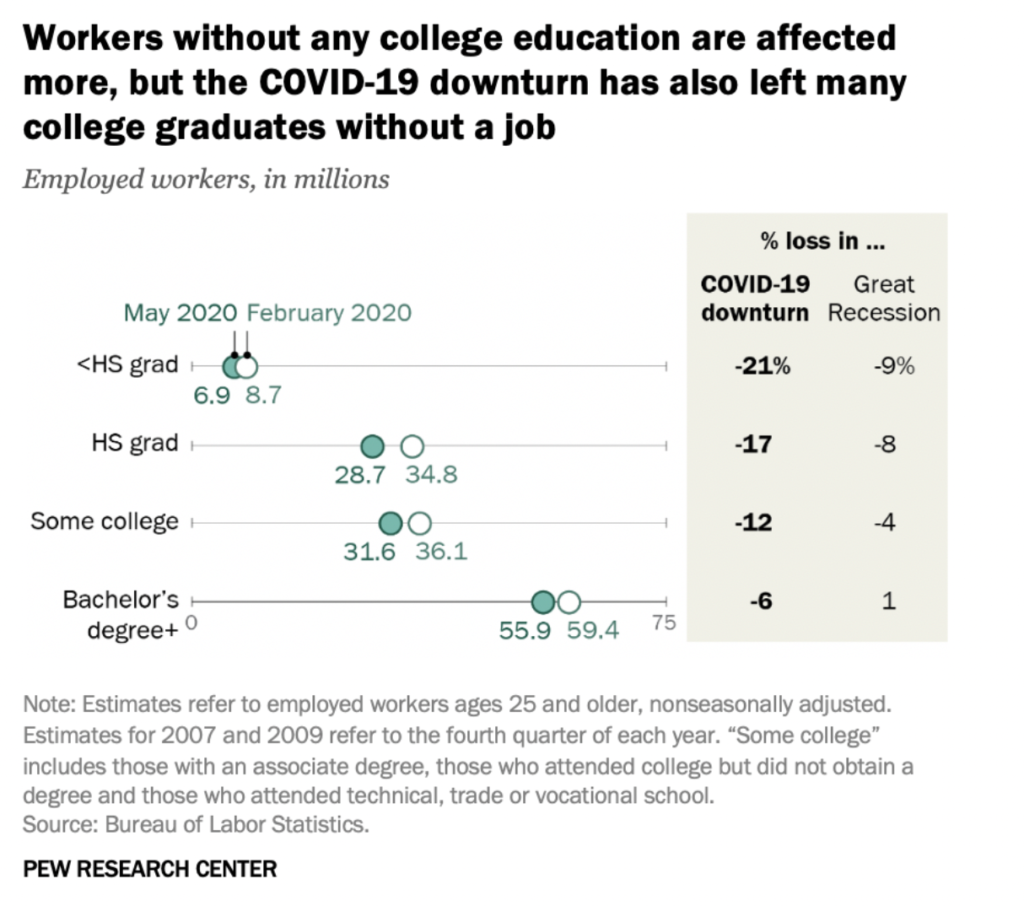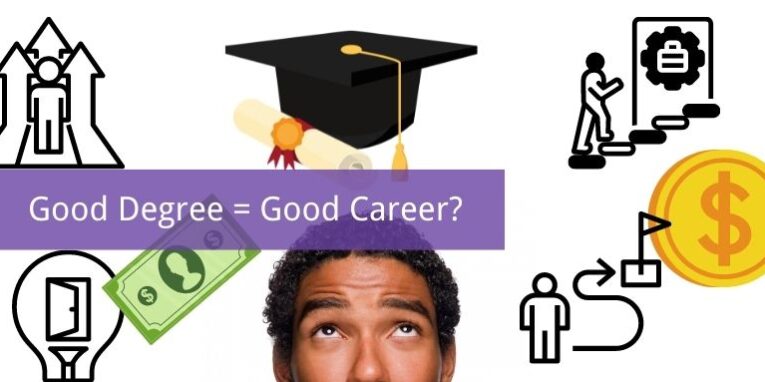Blog 12 – Do Elite Universities Mean Great Careers?
What Are Employers Saying?
LinkedIn CEO Jeff Weiner told attendees at a conference that “skill training, and not educational degree achievement, should be the most important area of focus for graduates and employers” (Carter, 2016). The Apple CEO, Tim Cook revealed that “there’s a “mismatch” between the skills learned in college and the skills that businesses need, especially when it comes to coding”. Surprisingly, he also said that half of Apple’s US employees do not have four-year degrees (Eadicicco, 2019). Agreeing with Tim Cook, the CEO of Siemens, Barbara Humpton, pointed out “just because someone has a 4-year degree, doesn’t mean they are more talented or suitable for a job” (Kane Partners, 2020).
What does this mean? When business leaders and giant companies seek skills to get the job done, rather than candidates holding degree papers, does that mean degrees don’t matter anymore?
Degree Still Matters!
Let’s first look at what happened during the pandemic. Pew Research Center published an article (Kochhar, 2020) revealing that workers without any college education were more likely to have lost their jobs than workers with at least some college education in the COVID-19 downturn. While only 6% of bachelor’s degree holders lost their jobs in the VOCID-19 downturn, 17% of high school graduates lost theirs. This nonuniform pattern in job losses by education level is also in line with trends in recessions historically, including the Great Recession in the early 1980s.

Degree from Prestigious Universities Matters!
The employee rate alone doesn’t tell the holistic story. Having a job doesn’t mean having a high-paying, decent career. “All universities are the same” is the biggest joke I ever heard. In Canada, students receive too much encouragement. They are encouraged for showing up in a school basketball game when they have zero talent. When the education system constantly gives kids false perceptions that the world is a wonderland full of love and courage, the bloody truth is that the world is competitive. Eventually, there are limited resources and high-paying jobs in the market you can assess. From an employer’s perspective, they only seek candidates possessing the desired skills and characteristics. They don’t have the time to listen to your life stories so that they know you are a smart individual with self-discipline.
If you ever learned finance, you must have learned the concept of signaling. When colleges make the process of filtering students to different levels, ranking them numerically, forcing them to compete, companies feel relieved. They can now simply recruit from the same pool of highly selective colleges, without worrying if a candidate is untalented, has no self-discipline, or lack critical thinking skills.
“As a young person, you can tell yourself that college doesn’t matter or that high school has nothing to do with your career, but the reality is, in virtually all scenarios, the easiest and most effective path to success is getting into an elite college and making the most of that opportunity.” (Beaton, 2022)
References
Beaton, J. (2022). Accepted!: Secrets to gaining admission to the world’s top universities. Jossey-Bass.
Carter, J. (2016, November 17). LinkedIn CEO: Skills, not degrees, matter most in job market. Higher Ed Dive. https://www.highereddive.com/news/linkedin-ceo-skills-not-degrees-matter-most-in-job-market/430651/
Eadicicco, L. (2019). Businessinsider.Com. https://www.businessinsider.com/apple-ceo-tim-cook-why-college-degree-isnt-necessary-2019-3)
Kane Partners. (2020, January 2). A focus on skills, not degrees, in the new decade. IT Staffing Solutions Kane Partners LLC | (215) 699-5500. https://kanepartners.net/a-focus-on-skills-not-degrees-in-the-new-decade/
Kochhar, R. (2020, June 9). Hispanic women, immigrants, young adults, those with less education hit hardest by COVID-19 job losses. Pew Research Center. https://www.pewresearch.org/fact-tank/2020/06/09/hispanic-women-immigrants-young-adults-those-with-less-education-hit-hardest-by-covid-19-job-losses/








